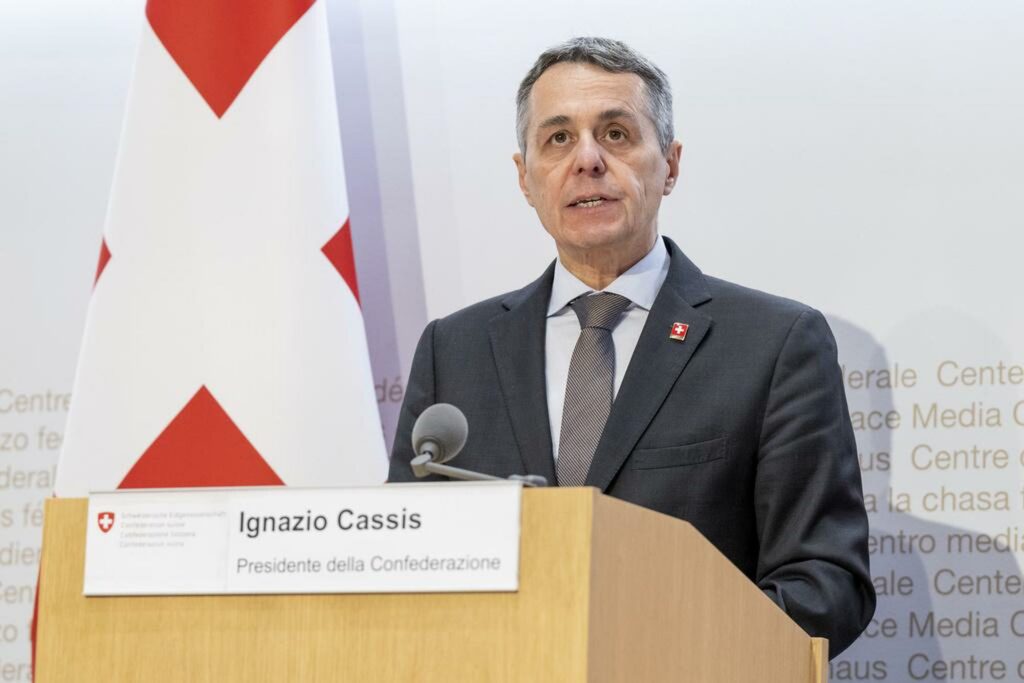الثلاثاء, فبراير 22nd 2022

Historically Switzerland has been known as a tax haven, but a new report details how the U.S. ranks lower when it comes to tax transparency.
The United States is more complicit than Switzerland when it comes helping people hide their money, according to a biennial report released by the Tax Justice Network.
Researchers at the U.K.-based Tax Justice Network studied the financial transparency of all nations on its “Financial Secrecy Index.” They scored each country’s transparency on a scale from zero to 100, with 100 being full secrecy.
“The U.S. now fuels more global financial secrecy than Switzerland, Cayman and Bermuda combined,” according to the report.
The rankings:

Switzerland has made moves to improve its transparency over the last ten years — most notably after a U.S.-instigated lawsuit in 2013.
The report was published just days after the U.S. government’s Helsinki Commission accused Switzerland of being the “leading enabler of Russian dictator Vladimir Putin and his cronies” when it comes to hiding wealth, despite the fact that the Swiss Confederation has broken its own historic neutrality to sanction Russian assets. (أمريكا تبدأ في الضغط على سويسرا بشأن الأصول الروسية).
Moreover, Switzerland and the U.S. in 2013 resolved a tax dispute related to Swiss banks allegedly helping Americans to evade taxes. The dispute, which began in 2009 with a deferred prosecution agreement from the U.S., ended in Swiss banks having to pay more than $1 billion in fines.
Financial experts say that one of the most damaging practices the U.S. currently engages in is its refusal to exchange financial information with tax authorities in other nations, although more than 100 countries already do. Sharing such information has brought transparency to more than $11 trillion in hidden wealth, according to a 2020 report from the Organization for Economic Co-operation and Development (OECD).
“The U.S. remains the only major economy not to participate,” according to the report. “Hypocritically, the U.S. does require, under the Foreign Account Tax Compliance Act (FATCA) and its related inter-governmental agreements, all countries to share information with it about U.S. taxpayers financial accounts abroad, but the U.S. shares little to no information in return with countries about their residents.”
Financial experts say that if the U.S. would share tax information, it would reduce its financial secrecy by 40% — a move that President Joe Biden has urged the U.S. Congress to pursue in 2023.

Swiss Confederation President Ignazio Cassis in March announcing that Switzerland will not remain neutral; and, will enact tough sanctions on Russia.
Overall, all nations bettered their transparency by 2%, researchers say. Switzerland improved its score by loosening its banking secrecy practices and requiring the use of an updated Legal Entity Identifier for some financial institutions. In addition, Switzerland now requires Swiss extractive companies, such as Glencore, to report their financials.
These moves “means less room for the type of practices that have come under scrutiny as countries attempt to enforce sanctions on Russian oligarchs – such as banking secrecy, anonymous ownership of real estate, and the use of trusts to move wealth beyond the reach of the law,” the report says.
Today, G7 finance ministers will meet in Germany to discuss enforcing sanctions on Russian oligarchs’ assets.
“Globally, we’re starting to curb the financial secrecy used by Russian oligarchs, and also by tax evaders, corrupt politicians and organized crime around the world to hide and launder ill-gotten wealth,” said Alex Cobham, chief executive at the Tax Justice Network.
“But the U.S., U.K., Germany, Italy and Japan cut back that global progress by more than half, fueling financial secrecy instead of fighting it. The G7 must make clear where they stand in the fight against financial secrecy by committing to a global asset register,” Cobham added.
يمكن مشاركة هذه المقالة وإعادة طباعتها مجاناً، شريطة أن تكون مرتبطة بشكل بارز بالمقالة الأصلية.
